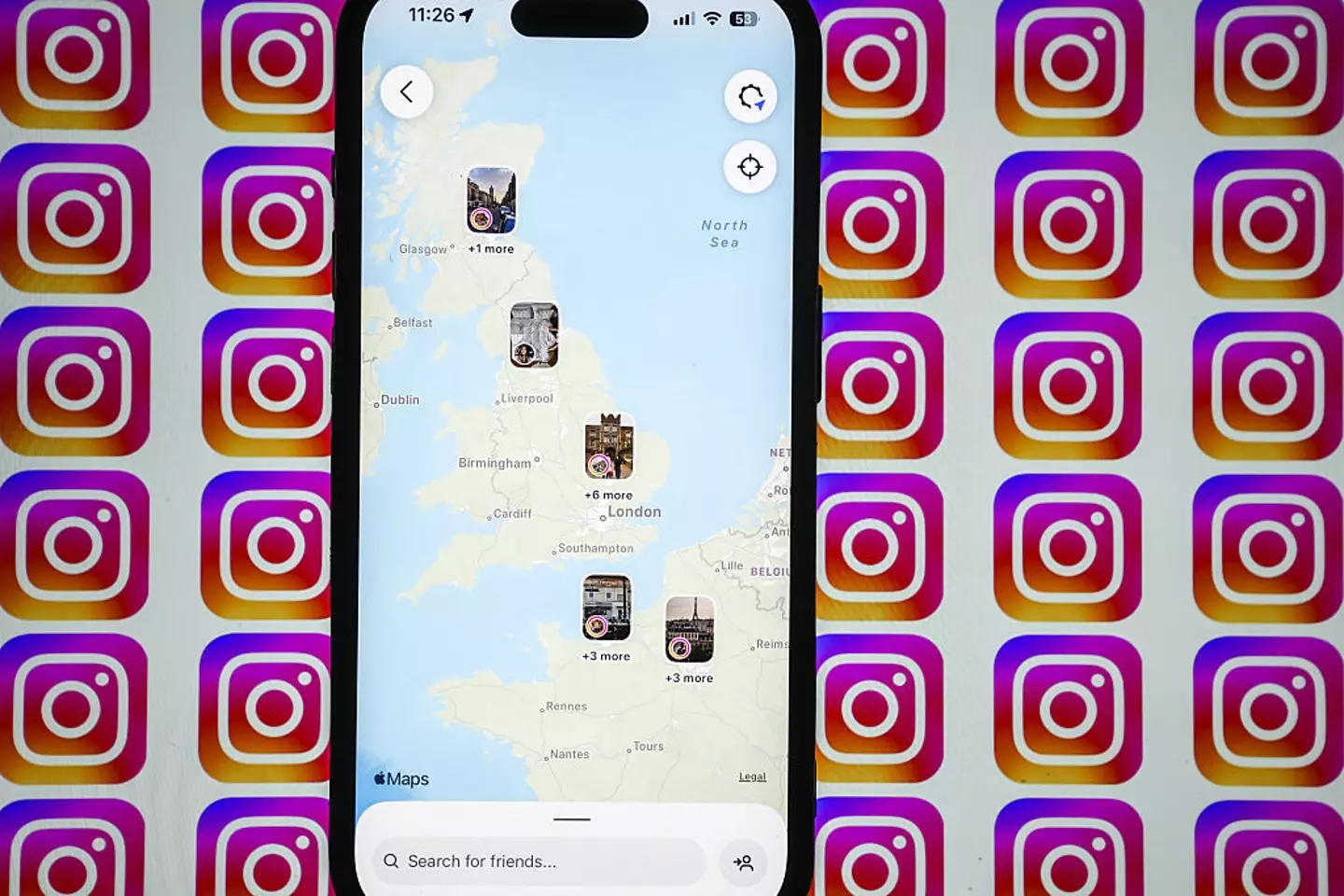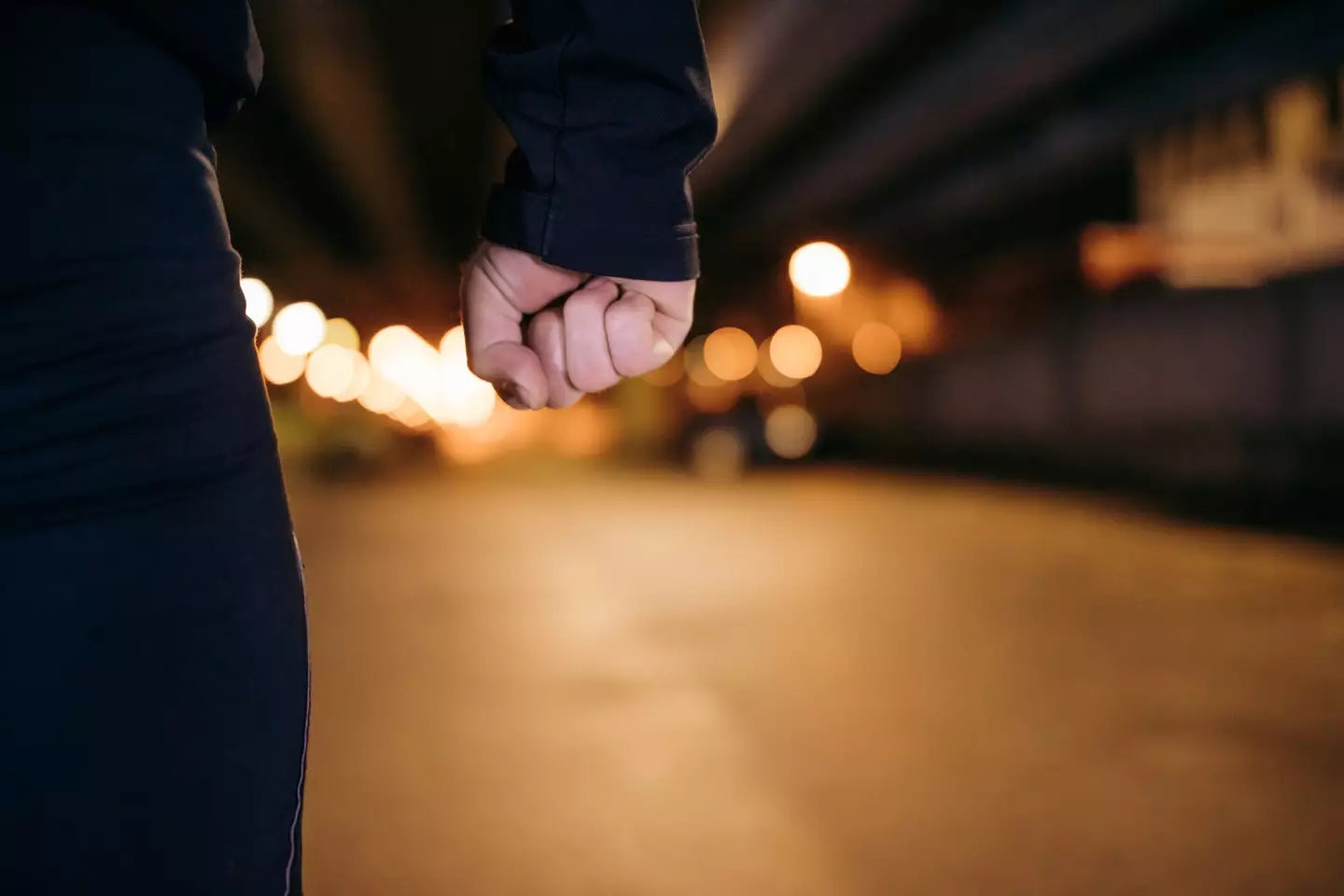
Topics: Domestic Abuse, Meta, Social Media, Instagram, Crime

Topics: Domestic Abuse, Meta, Social Media, Instagram, Crime
Experts are sounding the alarm over a new feature on Instagram that they say poses several 'dangerous' consequences - from stalking to real-life harm.
Early last month, Meta rolled out several new fun features to Instagram users in the US.
However, the Instagram Map, which allows users to share their last active location on their stories, reels and content with their mutual followers on a digital map, hasn't gone down so well with dozens claiming they could suddenly see their buddies whereabouts 'down to street names and landmarks.'
Although Meta insists the Map is optional and can be restricted to a close group of friends, violence against women and girls, domestic abuse, stalking and tech safety experts have told UNILAD the idea comes with some red flags.
While many say they welcome the 'opt-in' default, they say it is 'unrealistic' to assume the Map can be made safe and secure 'solely through user preference.'
Advert

This boils down to a myriad of complex reasons - from survivors and victims of abuse and violence either being threatened, blackmailed, bullied or coerced into turning location-sharing on, to a lack of broader online safety awareness and digital literacy.
Jennifer Simmons Kaleba, Vice President at US charity RAINN (Rape, Abuse and Incest National Network), said: "Kids and young adults trade Instagram handles in the way older people might have traded phone numbers. And unlike your phone number, your Instagram profile gives near-strangers extremely detailed insight into your personal life."

Kadın Dayanışma Vakfı, a women's counseling center in Turkey, also noted through its workshops with victims that daily routines, movements and even social circles of friends are now 'easily' tracked online.
Social media already lowers the barrier for abusers, stalkers and sexual predators, whether partners, online acquaintances or strangers, to gain unprecedented information into the lives of their victims.
The experts say for this reason, the Map runs the risk of 'emboldening' stalkers and hiking incidents of harassment and even physical violence.
As for perpetrators, they gain a sense of 'omnipresence and total control,' Alessandra Pauncz, Executive Director of WWP EN, the European Network for the Work With Perpetrators of Domestic Violence added, as a 'digital shadow' can follow victims 24/7, wherever they go.
Adding insult to injury, the pros point out illegal spyware that can share messages and even watch a person through a phone camera has also been on the rise - and when 'combined' with location-sharing apps, makes the life of a stalker or abuser that much easier.
Meanwhile, law enforcement struggle to keep pace with incidents as the pros say police often lack the resources, tools and technical expertise to match that of perpetrators.

Technology-facilitated abuse has snowballed in the wake of social media, the experts told UNILAD, presenting victims with an almost impossible task when it comes to escaping the clutches of nefarious friends or abusive partners who can monitor, intimidate and manipulate far more easily than they ever could before.
Meta says the location of a user who has shared their story to the Map disappears after 24 hours and will never reveal live or real-time locations.
Still, experts say even the fact it is visible at street level can result in 'real-world harm' for survivors of domestic violence, according to Emma Pickering, Head of TechFacilitated Abuse and Economic Empowerment at Refuge.
Women Against Violence Europe (WAVE) also said in a statement that they 'unequivocally affirm' the Map could 'cause tangible physical and psychological harm to survivors,' adding: "Abusers often act ahead of legal protections and prevention measures, exploiting new tools before victims can fully understand the risks.
"Digital safety is inseparable from physical safety. A seemingly neutral feature can have deeply gendered and dangerous consequences if not designed with the realities of coercive control and gender-based violence in mind.”

Phones and social media has also driven a new toxic narrative in relationships as experts say invasive techniques like sharing passwords, demanding real-time images and locations is commonly repackaged as 'signs of love or concern', affection and as 'proof of trust'.
"The 'Instagram Map' risks further embedding this toxic narrative, legitimising surveillance in intimate relationships," WAVE commented.
"This cultural normalisation means young people, especially girls, are more likely to accept or be pressured into sharing their location, even when it compromises their safety."
Meanwhile, the experts agreed that resisting these demands could put victims at risk of physical violence or other 'serious repercussions.'
Gorica Ivić, a WAVE board member, added that 'threats and blackmail related to sharing intimate content are also frequent.'
A spokesperson for Meta told UNILAD: "Instagram Map is off by default, and your location is never shared unless you choose to turn it on. If you do, only just people you follow back—or a private, custom list you select—can see your location."
The company reiterated the Map 'does not share your real-time location' and the story, post or reel will only appear on the Map for 24 hours.
Meta also said it has already made improvements based on 'user feedback,' including a 'more prominent, persistent indicator' and a 'reminder' that they're sharing their location.
Profile photos have also been removed to show 'that it's not someone's location.'

According to Sara Kirkpatrick, Chief Executive of Welsh Women's Aid, the tech landscape has dramatically shifted in recent years to inescapable and constant surveillance - and it's not just Meta or Instagram that is guilty of facilitating digital harm.
"I would hate to single out Instagram when there is such a broad range of tracking devices,” she said.
"We should talk about the wider surveillance tech landscape in my view rather than focus on one. Plus the opt in is a good thing, it means we are encouraging the ‘decision’ to be visible unlike the default surveillance on so many apps and devices.”
Although Meta has taken feedback on board and made changes to the Map already, many of the experts that spoke to UNILAD are encouraging some more changes.
WAVE said it would like to see the company to remove 'external prompts or gamification' in promoting the Map and to provide 'clear' information prior to activating the setting 'on the risks of coercive control, stalking and digital abuse.'

Emma Pickering commented that Refuge wants to see Meta 'consult with gender-based violence and digital safety experts before expanding this feature and to prioritise the safety of vulnerable users in its design and implementation' while Fiona Murdoch of Rape Crisis Network Ireland is calling on Meta to 'remove' the Map entirely.
"At legislative level, there has been much hard fought progress made to protect vulnerable people's data and privacy from abusers and stalkers. The business imperative of a private multi-national corporation cannot be allowed to set that work back to nought," Fiona explained.
In response, Meta said it works with more than 400 women's safety organizations and experts across the world, with its own group of advisors to ensure its platforms are safe for women.